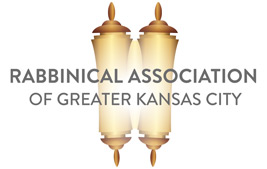Created by Rabbinical Association of Greater Kansas City
(Updated March 2021)
The Kansas City Communal Genizah was created by the Rabbinical Association of Greater Kansas City. It is a cooperative initiative with generous funding coming from the Menorah Heritage Foundation. The land and labor was donated by Congregation Beth Shalom. Its purpose is to serve the need to bury shemot (the writing of God’s name in Hebrew) in accordance with Jewish tradition for the Hyman Brand Hebrew Academy, the Jewish Community Campus, and for individual Jewish families in the Kansas City Jewish Community.
This policy is to allow the Jewish community to appropriately bury any shemot. At the same time, consecrated burial ground is extremely limited, and this policy attempts to limit burial to only those objects which require burial.
To allow the community genizah to last the community as long as possible, this policy uses the most narrow definition of what requires burial. If individuals wish to bury more, it is permissible in Jewish tradition for you to bury your sacred objects on your own personal property.
What May Not be Buried at the Kansas City Communal Genizah?
- Jewish holy books which are still in good use and can continue to be utilized. These books should be donated to a Jewish school, synagogue or library.
- English (or non-Hebrew) books with God’s name in English (or any language other than Hebrew) or in transliteration.
- Any digital material such as hard-drives, CD’s, etc.
- Newspaper clippings, personal calendars, Hebrew-language secular books or other items which do not have God’s name in Hebrew.
- Ritual objects that are permitted to be disposed of respectfully: Tallit, Tzitzit, Lulav, Etrog, etc. (If there is a doubt, please consult your rabbi).
- Loose notebook notes, source sheets, or other photocopied or digitally printed items that were not printed with the intention of being permanent.
- Please note: we suggest novels, cookbooks and reference books and other items that do not need to be buried in the Genizah be taken to Half Priced Books for sale or donation to a local thrift shop.
What May by Buried at the Kansas City Communal Genizah?
- Ritual items which require burial. These include a Torah scroll, Mezuzah scroll, Tefillin. (If there is a doubt, please consult your rabbi).
- Completely worn-out prayer books, Hebrew books of scripture, Hebrew books of the Oral Torah (Mishnah, Talmud, Jewish law, etc.)
- Photocopies of an entire page of Torah that includes God’s name.
Which individuals or organizations may use the Genizah? How is the Genizah Accessed?
- HBHA will be responsible for collecting its own shemot and any shemot from other agencies on the Jewish Community Campus.
- If you have books and materials that meet the requirements for burial in the Genizah, contact your individual synagogue or temple to inquire about whether your congregation is a drop off site. Otherwise, items may be delivered to the community drop off location at BIAV Synagogue, 9900 Antioch Road, 66212 by appointment (913-341-2444 or email assist@biav.org). Note: BIAV will also bury items in their cemetery (Sheffield) but do request an $18 donation per 12x18x12 box of materials. Do not bring materials loose or in shopping bags.
- For synagogues and HBHA to bring their shemot to the Communal Genizah for burial, they should contact the Beth Shalom administrative office to arrange a time at Mt. Carmel Cemetery and the caretaker will open the Genizah. Individuals and organizations are required to carry their own boxes of shemot and put them in the Genizah themselves.
- Out of respect for the Mt. Carmel Staff, synagogues without a cemetery should strive to bring their shemot to Mt. Carmel at the same time as HBHA or other synagogues or temples.
- If someone unaffiliated with a synagogue or temple wishes to bury their shemot and they have a large amount (at least 1 cardboard box), they will need to arrange with Beth Shalom and Mt. Carmel a time to bring their own Shemot to Mt. Carmel to place in the Genizah themselves. HBHA does not have the storage for large amounts of shemot.
These policies were based on the policies of the Greater Boston Jewish Community. For more information click here: https://www.jcam.org/Pages/Services/book_burials.htm
Other Resources about Shemot: https://outorah.org/p/31088
